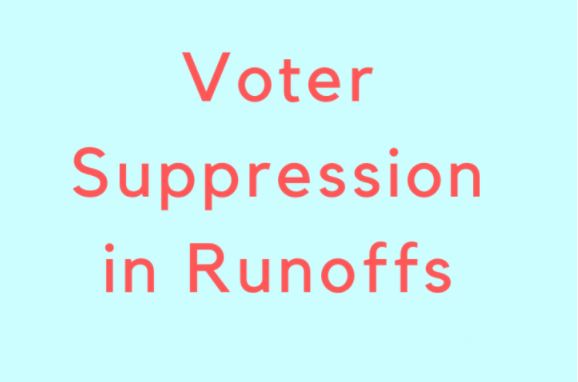
History of racism and voter suppression in runoffs
Georgia has a long, complicated history of voter suppression and racism that have manifested into the modern-day runoff election. Dating back to the 19th century, Georgia aimed to manipulate voting laws in order to maintain control over minorities, namely newly-freed male slaves. These laws resulted in violent, dangerous voter suppression and intimidation campaigns, based on threats. In some cases, physical violence was used to prevent Black men from exercising their right to vote.
Georgia also employed a unit voting system in the past, which disregarded the population of different counties. Instead, each county was classified as rural, urban or town and received two, four or six votes, respectively. Despite lacking in population, rural counties held much more political influence than both the eight urban and 30 town counties. In fact, each rural vote counted as much as 72 votes to just one urban vote. This proved to be a tactic to suppress the voice of Black voters, who typically occupied the urban and town counties.
The Supreme Court became involved in 1962 in the case of Baker v. Carr, when they declared this process illegal, due to the ‘one person, one vote’ principle. This led to the creation of runoff elections in Georgia, meaning that if no candidate receives more than 50% of the vote, a general election will become a runoff election between the top two candidates.
Based on the fact that the creators were racists and segregationists, it has been proven that the runoff process was founded on racist ideologies. Runoff elections were created based on the fear that with a plurality vote, which does not require the winner to receive over half of the votes, African American citizens could vote as a bloc for a single African American candidate. Without a majority population in the state, it is nearly impossible for a minority group to elect a minority candidate through Georgia’s current system, which requires the winner to receive over half of the votes in the general election. Instead, the majority voters, who previously may have been split between candidates in the general election, can rally around their candidate of choice in the runoff elections. This system continues to adversely affect minorities. In many cases, the runoff system can prevent a minority candidate, in this case, a Black candidate, from being elected or advancing to further rounds of elections.
